Have you heard? A major dip in the jet stream this weekend will lead to much cooler temperatures and snow for the northern Rockies. We discuss what this means for the Front Range. Our advice: enjoy the relatively warm temperatures while you can!
The pattern of late has not been favorable for bringing down the colder air from Canada to our region. However, this is about to change! We are now seeing very strong signs that things will be shifting this weekend as a deep trough is expected to develop across the western United States, with a huge ridge for the East Coast. The development of this dipole pattern, as it is called, is shown in the GFS ensemble 500 mb height anomaly animation below. Watch as general weak troughiness deepens, producing a formidable trough late in the weekend.
Zooming in, here is what the latest operational GFS model run is showing for Monday morning.
Overall model agreement is exceptionally high this time around, which is the main reason this trough has our team excited five days out. It’s not just one weather model, one time showing this pattern. It’s every single model…every single run…..and (nearly) every single ensemble member. The spaghetti plot of 500 mb heights from the GFS ensemble screams confidence, that is it has tight clustering of the green 5760-meter lines at the base of the trough:
Also take notice of the similarly low variability in the position of the two large ridges of high pressure….one across the East Coast, and the second over the eastern Pacific Ocean. These strong ridges will help to keep the trough and associated cold airmass in place across the West for quite some time, blocking the system from moving either east or west. Ultimately, this will translate to an extended period of below normal temperatures and unsettled weather for much of Colorado.
While a sizable dumping of snow is looking likely for the Mountains across the state from the cold air and orographic lift, the precipitation potential across the Denver Metro area remains fuzzy for now. The coldest air won’t push in until Monday or Tuesday of next week, and models don’t show a good consensus on a low pressure forming on the Plains. We’re concerned that while the West will be generally chilly and unsettled, the Front Range could be on the fringe and have downslope or the dry slot kill our chances of much precipitation.
Nonetheless, at this point, we believe it’s fairly unlikely that we will escape scot-free next week. With a broad trough located just to our west for many days, sooner or later something should materialize east of the Continental Divide. The GFS ensemble mean produces 6 to 12″ of snow in the Mountains, with amounts more than a foot in some ranges. Significant accumulating snow in the High Country is all but a certainty.
For the lower elevations, it basically a coin flip as to whether we see our first snow or not. The overall pattern definitely makes it a possibility, but the finer details must be ironed-out before we can guarantee any white stuff just yet. The best chance of snow in Boulder/Denver looks to be Monday evening and night, so do keep an eye out. In the Foothills above about 8,500 feet, we are leaning towards “yes” on snow altogether. There is some time for things to swing either way, though. Follow along with the developing trough by checking our Snowfall Probability Charts or Ensemble Precipitation Plumes.
And as always, we’ll be discussing things every morning with our Premium members.
That’s all for now. *Finger crossed for snow*…
.
Help your friends & family find us…share our forecast!
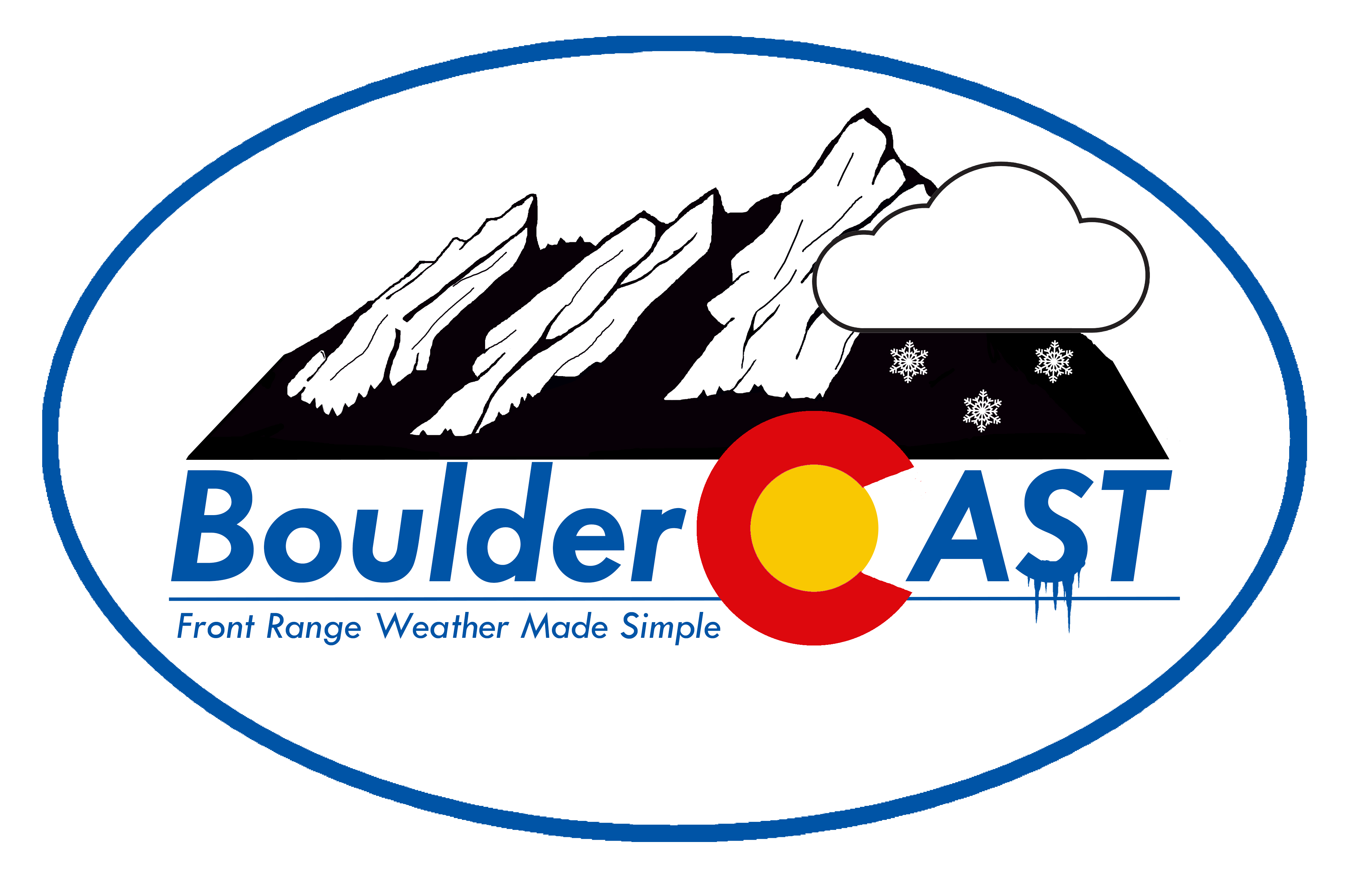










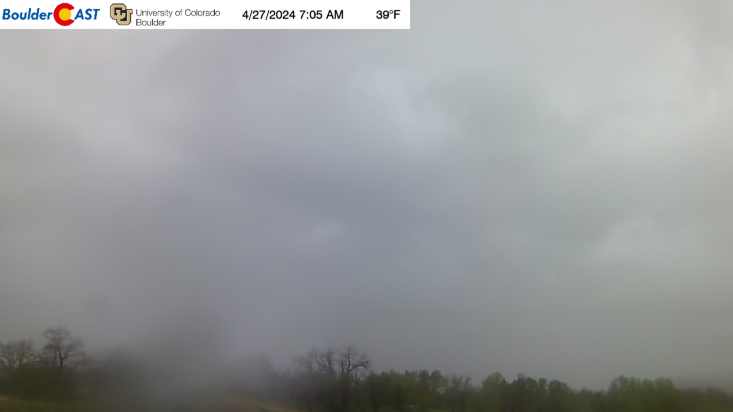
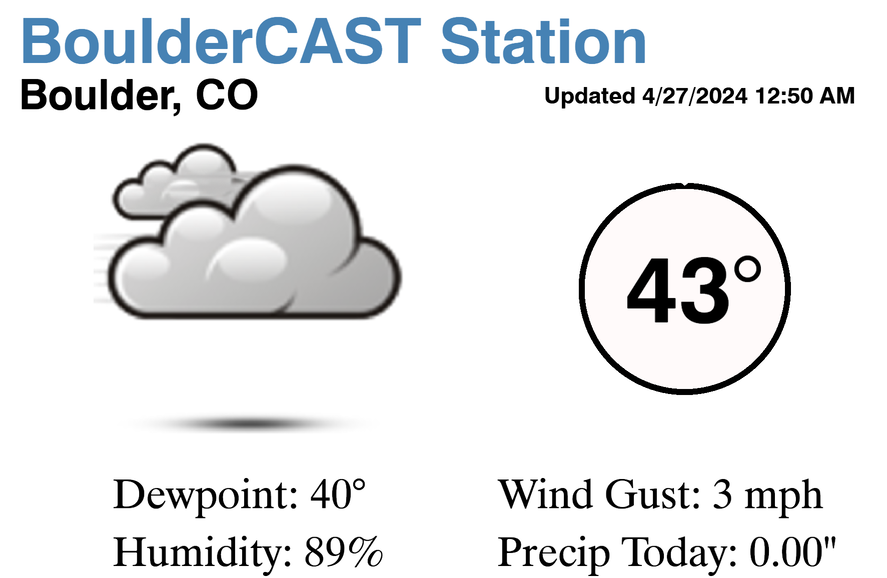
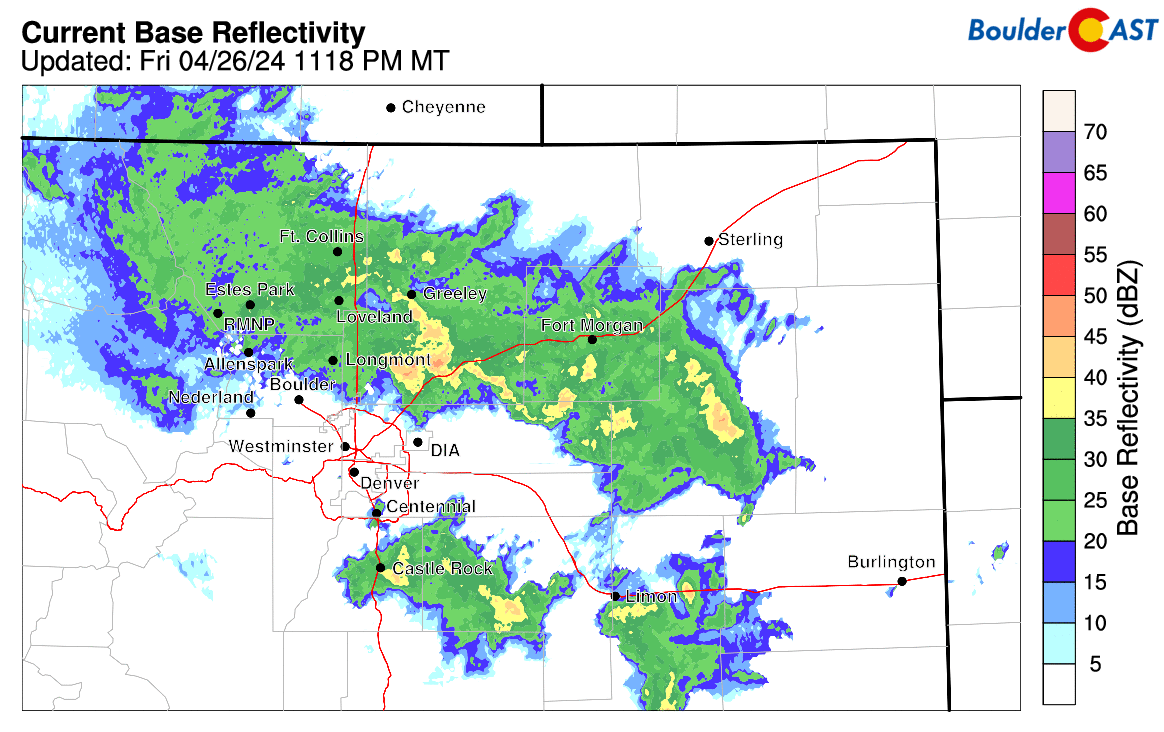

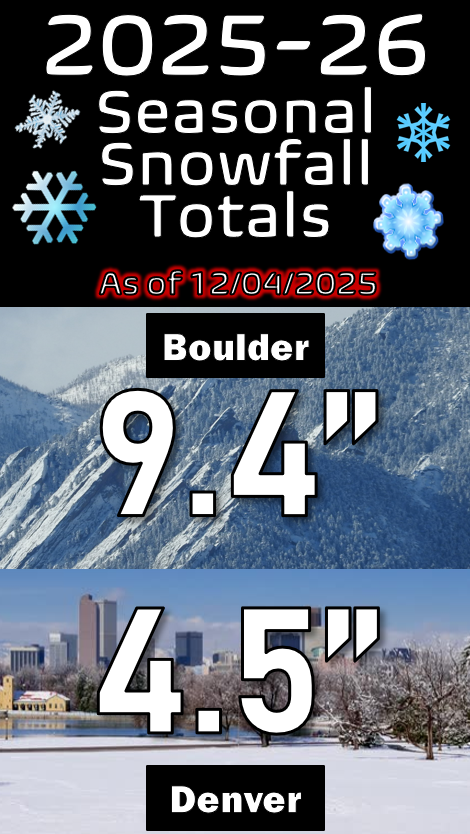
You must be logged in to post a comment.